The former gang member who now leads Chinatown tours around his old haunts: ‘I’m giving myself a chance’
Ex-offender Alvin Chiong doesn’t shy away from his past. In fact, he uses his life story to talk about Singapore’s own history during his tours around Chinatown’s heritage areas where he once hung out.

Alvin Chiong is a tour guide with Triad Trails, an initiative in which tours around the wider Chinatown heritage area are led by former secret society members. (Photo: CNA/Joyee Koo)

This audio is generated by an AI tool.
As life experiences go, Alvin Chiong has amassed several from opposite ends of the spectrum.
For one, the former gang member used to pride himself in knowing “which toilet cubicle is safe to take drugs”, but now harnesses this encyclopaedic memory of the country's hot spots in his day job: Being a tour guide.
The 53-year-old is part of the Triad Trails initiative – the first walking tour in Singapore led by former secret society members – supported by the Singapore Tourism Board and organised by social enterprise Architects of Life, which supports ex-offenders.
Tours cover the wider Chinatown heritage area – including some of his old haunts. The popular roller-skating arena at the former Amara Shopping Centre, where the revamped Amara Hotel now stands a stone’s throw from Tanjong Pagar MRT, used to see frequent gang territorial fights in the 1980s, he recalled.
In a full-circle moment, Chiong is currently leading a walking tour for Amara’s in-house guests till end November, a specially curated route outside his usual Triad Trails programmes.
Understandably, tour participants often come armed with endless questions about his chequered past and time behind bars, but he never tires of talking about the “not nice” experiences or revisiting the places he used to hang out. He indulges their curiosity instead with a degree of self-assuredness only possible from having survived life’s highest highs and the lowest lows.

Chiong was incarcerated four times over a decade from 1998 for drug-related offences. But in a turn of fate, he has been a regular prison volunteer since a decade ago, coming face to face with prisoners he remembers once doing heroin with.
His wife hasn’t been spared from the rollercoaster of emotions either, having been beside him when their home was raided by Central Narcotics Bureau officers decades ago, guns pointed at him, due to his involvement in a drug syndicate.
Decades later, she would be equally shell-shocked when she learnt her husband was taking her to meet former president Halimah Yacob at a Singapore Anti-Narcotics Association event.
These ups and downs are simply "life experiences I’ve gone through, so I want to share with others who are going through this struggle", he shared. "Maybe it can help in one way or another."
EXPOSED TO DRUGS, GANGS BEFORE HE WAS 10
By his own admission, Chiong grew up in a “dysfunctional family”. As a child, he was “protection” for his late father, an opium addict, against gangs.
“Because of his addiction, he gambled (and) drank. There was a lot of domestic violence, so my mum left the family when I was seven. I had to stick with my dad (and older brother) in a one-room rental flat at Old Airport Road,” he said. While his parents have since passed on, he remains in touch with his brother.
“All my father’s activities were exposed to me when I was very young. Opium was not so easy to access then, so some neighbours shared it with him. When he couldn’t get opium, he’d switch to heroin… like a substitute.”
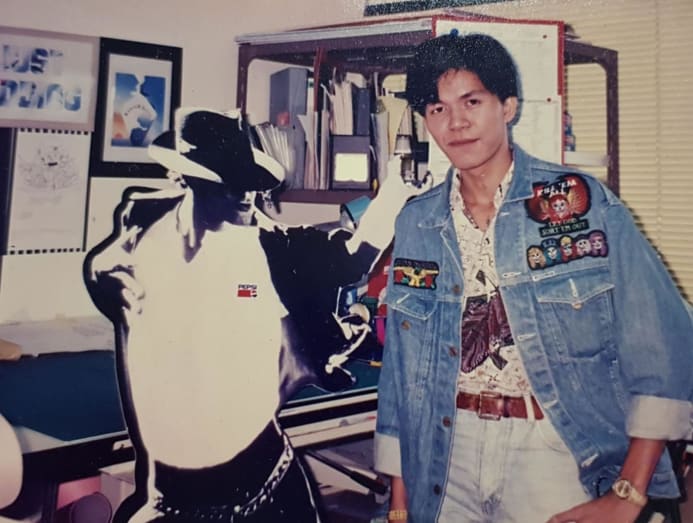
By the time he was nine, Chiong took to drugs himself. He had hit the streets, looking to earn some money after school by selling various goods – from drinks during football matches to newspapers with lottery results – and found himself in bad company, eventually dropping out of school in the middle of Secondary Two.
“I started glue-sniffing, taking sleeping tablets, smoking, because I can afford… Then later I upgraded to marijuana, and before National Service (NS), I tried heroin. That was an on-off thing; when I finished NS, I started to do heroin more often,” he said.
More importantly, these gangs gave him what he was actually looking for: Brotherhood and “a sense of belonging, protection (and) identity”.
No matter where he and other gang members went, people recognised them. When they visited coffee shops, for instance, they got to drink coffee for free. They were often envied or feared, and he loved the reaction either way.
“We thought it was very glamorous to bring fear to people,” he laughed sheepishly. But life would soon catch up to him.
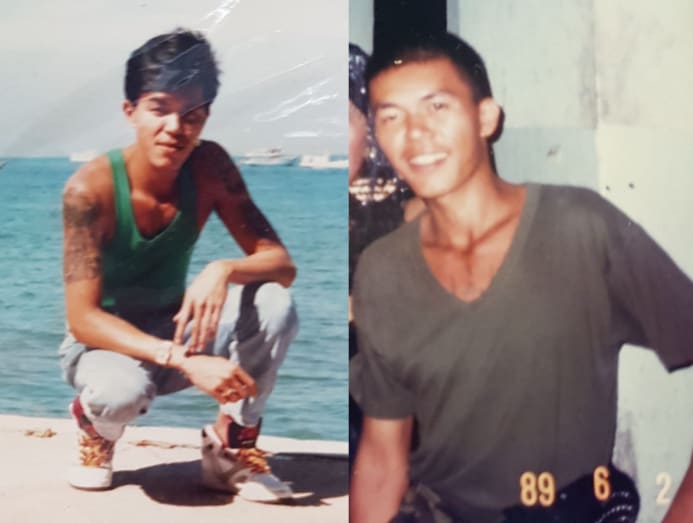
INCARCERATED FOUR TIMES, THEN MORE HARDSHIP AFTER PRISON
Chiong’s first arrest was in 1998, followed by twice in 2001.
When he was released after serving his first sentence in 2001, he “very fast went back to prison in two months’ time” – a stint that landed him an additional sentence and caning. His final time behind bars was in 2008.
But his hardship and bad decisions didn’t end there. His wife had separated from him in 2007, taking their two sons with her. Following his release in 2008, he “very fast” relapsed again.
This time, though, he told himself he wanted to stop living that life, so he checked into a halfway house and stayed for about a year. Yet once he was out, he relapsed within two weeks.
Three months later, he checked himself into another halfway house, went through cold turkey again – then returned to drugs in a few months. After he’d gotten caught with drugs thrice in that halfway house, he was “chased away” by the director, he remembered. “He was saying, if you’re not quitting (your addiction), then don’t make the place messy.”
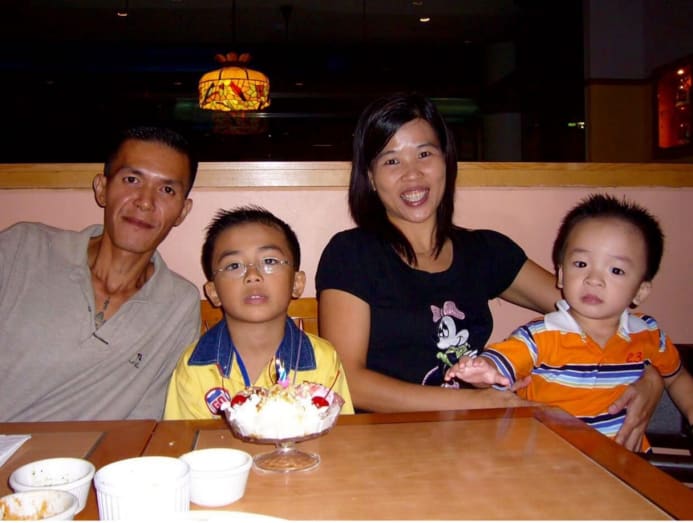
Feeling lost and helpless, Chiong sought refuge at his previous halfway house less than a week later. He pleaded with them to help him “one more time” – and in a decision that would prove life-changing, they agreed.
“That was the time that my life started to change because for the first two times, I believe I didn’t have the correct mindset when I went to the halfway house. I just wanted to quit my addiction,” he reflected.
“Yet after quitting, everything was still the same. I was still in the cycle; my character never changed, my group of friends never changed, the way I thought and the way I did things were still the same.”
In this final stay that lasted three years, he asked God to help him. “I want to change my life. I’m not here (solely) to quit my addiction anymore,” he said, adding that he also managed to quit his smoking habit.
Just as it seemed life was getting better, his wife filed for divorce.
AFTER MANY SETBACKS, JUST AS MANY TURNING POINTS
In hindsight, Chiong believes it was “a miracle” that he survived the divorce without turning to drugs again, because he had support at the halfway house. He gave his wife and two sons their family home, and applied for a rental flat with a halfway house “brother”.
After leaving the halfway house, he joined a support group, where its pastor would change his life two years later.
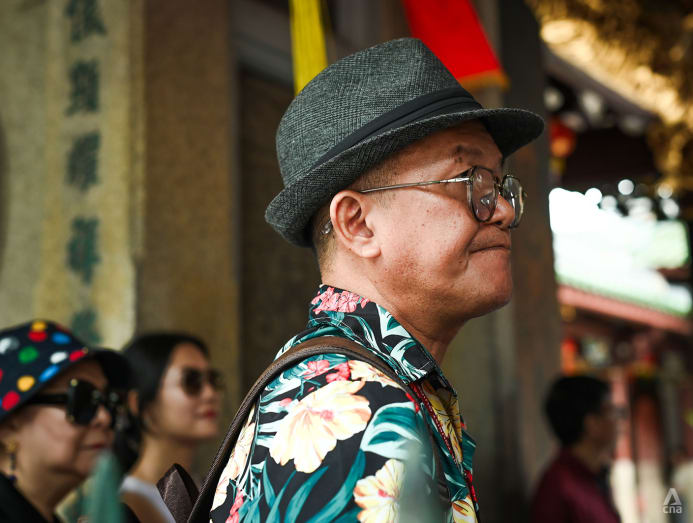
In December 2014, Chiong returned behind bars – this time as a prison volunteer with the pastor, who had applied for Chiong’s prison pass. Despite doing “very well” as an operations manager of a cleaning company then, with bonus season around the corner, he quit with minimal savings, so he had more time to focus on what he believed he needed to do then.
Going back to prison as a civilian is a “very different” experience, he stressed. It’s normal for such ex-offenders to struggle to adapt for the “first one to three years”.
“Some people will be in class talking. Some of us met outside; we used to smoke heroin together, and some of us even stayed in a halfway house together. They’ll say, ‘Won’t last long lah. Later you see, you’ll pack your barang (things) and come back.’”
But he empathises with the cynicism, having previously scoffed at other ex-offenders who returned to help when he was still in jail.
“It’s because we had the mindset that when someone is doing better than us and we cannot reach their level, we try to pull them down to level with us. So I don’t blame them,” he explained.
“I’m going back in to encourage them to give ourselves a chance, and stop asking people to give us a chance (when) we don’t prove anything. That’s why I try to (use) myself as an example. I keep learning; I go for courses to upgrade myself because I didn’t have a lot of opportunities during my younger days to study.”
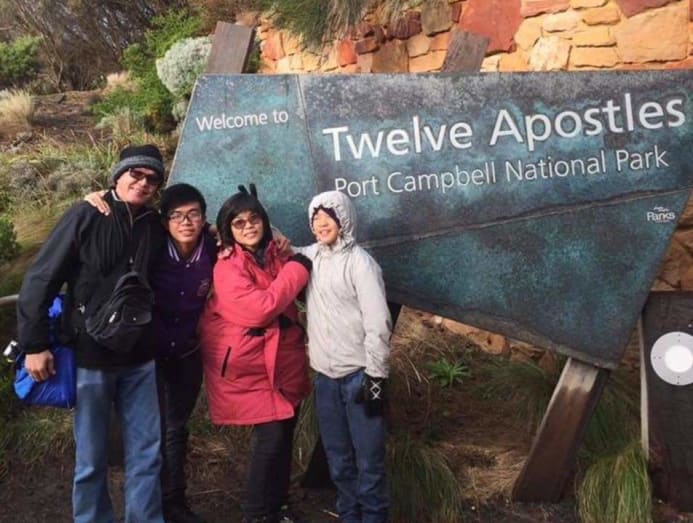
For a few years, Chiong volunteered in prison and worked other jobs to take his mind off his failed marriage, although he remained in touch with his ex-wife.
Convinced he was a changed man, she asked him one day if he wanted to return to the family. But instead of feeling overjoyed, he got “upset”, still affected by the divorce. He turned the question back to her, asking if she was ready, and joked that if she ended up regretting her decision, he would have no place to stay.
It would take several more such back-and-forths before she was ready to remarry her ex-husband. But once she came around, he had to get his sons’ blessings.
“I apologised to my boys for what happened all these years that I didn’t really take good care of them and I was always absent in their life.
“And I told them, ‘I’m going to remarry your mum again. You all got any objections? Please, say now. After that, we sign the paper, you cannot regret anymore.’ So they were happy also,” he shared, remarrying his ex-wife in 2016.
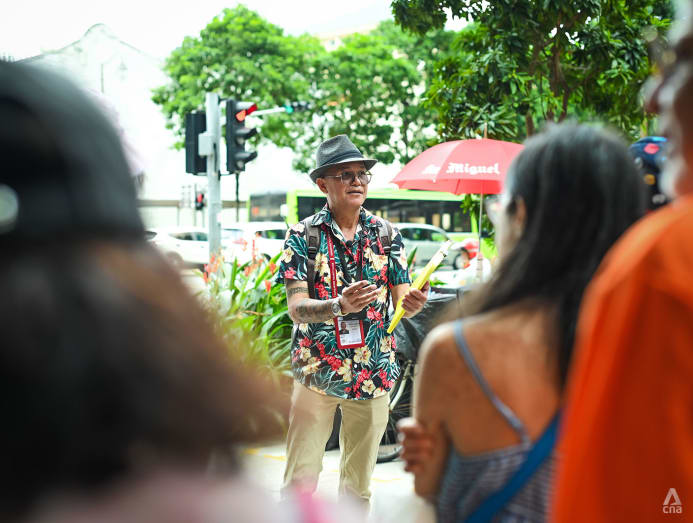
GIVING HIMSELF A SECOND CHANCE
Amid the pandemic, volunteers from Architects of Life – which Chiong had already been in touch with – suggested starting walking tours led by ex-convicts. He was on board.
But getting his tour guide licence in 2023 would prove to be another hurdle, with just a Primary School Leaving Examination (PSLE) certificate.
“It was a nightmare, because I didn’t go through proper secondary school education. I really didn’t know any history about Singapore’s development, sustainability, future development, water plan, places of worship, places of interest. Everything was (new to me),” he recalled.
“In this period of seven to eight months, I gathered as much information as I could, summarised them, compiled them, put into my brain. I don’t know how I made it.”
Yet he did. At 52 years old, “I finally started to learn about my Singapore and appreciate my country, the place I call home, and appreciate what the leaders have done for our little red dot”, he said.
Even after 16 years out of prison, Chiong still can’t quite believe he has come “this far”, and credits his turnaround to the people around him. He advises those still serving their sentence to “look for the right support group, draw energy from them when you are weak, and when you have extra ammunition, contribute back”.
What he won’t dole out are platitudes like “if I can make it happen, you also can”, he said. “Because what if they cannot make it? … I will say I’m giving myself a chance every now and then, so why not give yourself one?”
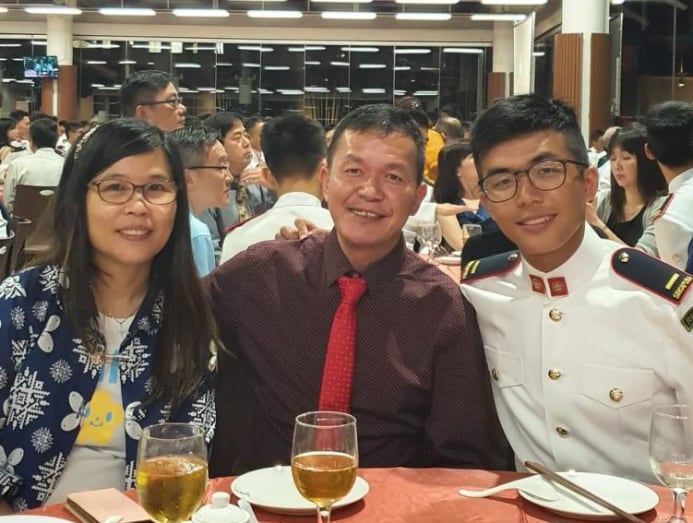
The second time I meet Chiong, he's more candid what he's learnt from his divorce. He now believes God “took away” his wife and children, even though his life was beginning to change, to “protect them”.
That is, until he had shown his change was for good.
But it’s a particular memory of his elder son, 24 this year, that finally breaks the ex-gangster's straight-talking demeanour. When his son was deciding what to study in university, he considered several options from medicine to architecture, before settling on becoming a teacher at the National Institute of Education (NIE).
“I asked him, ‘You preparing to teach which group of children?’ He said he’s going back to primary school and I asked him why. I told him those young kids are very challenging. But the answer he gave really comforted me a lot,” the proud father says, his eyes getting wet.
“He said when he was young, I was always not around, always arrested. And every time after school, there was a teacher who would stay back and give him tuition for free. He got very good grades and made his way into NUS High School. So he said he wants to go back to primary school to help this special group of children.”
I remark that it appears his son, by giving back to others now in a similar situation, has followed in Chiong’s footsteps.
And for the first time in our hours-long conversations in which the chatty tour guide was never short of stories, he says everything with just two words.
“Yes, maybe.”





